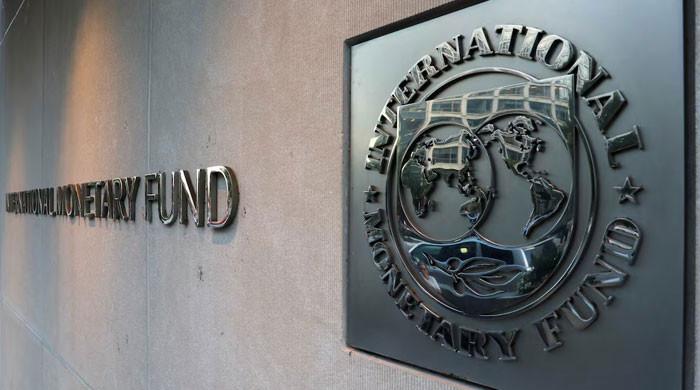ISLAMABAD: Representatives from the Federal Board of Revenue (FBR) and the Supreme Court Bar Association (SCBA) held discussions with a visiting mission from the International Monetary Fund (IMF) on Monday.
The agenda focused on a broad range of topics, including Pakistan’s tax reform strategy, efforts to boost actual revenue collection, and improvements in the country’s judicial and contract enforcement systems, along with safeguarding property rights.
The IMF’s Governance and Diagnostic Assessment teams are currently in Islamabad to meet with key authorities across various ministries.
Their goal is to assess the governance frameworks connected to fiscal and tax policies, anti-corruption mechanisms, public procurement practices, auditing procedures, and anti-money laundering efforts.
A credible source informed media that IMF technical experts have already engaged with tax authorities to examine FBR’s domestic reform blueprint.
This plan, endorsed by the Prime Minister last year, is designed to address the significant tax gap, which the FBR estimates exceeds Rs7 trillion.
The IMF’s diagnostic mission is composed of several sub-teams, each focused on areas such as taxation, financial management, corruption, auditing, and illicit financial flows.
Each of these groups has met with their relevant ministries to evaluate governance models and identify areas where reforms could yield improvement.
On Monday, the technical group working on tax matters received an initial presentation detailing the FBR’s tax transformation strategy.
Central to this plan is the integration of advanced digital tools and stricter enforcement protocols. These reforms are intended to shrink the existing tax gap and enhance revenue collection.
Part of the transformation involves converting all existing tax offices into Model Tax Offices (MTOs), while also streamlining the operations of enforcement and intelligence directorates to combat smuggling effectively.
IMF & Taxes
“We have provided the technical mission with our preliminary briefing,” a government official stated, noting that these presentations will continue over the next two days.
A conclusive meeting between the IMF team and the FBR chairman is scheduled once the initial rounds of meetings are complete.
Read More: IMF Technical Team to Visit for Budget Proposals on April 15
According to the same source, the IMF was informed about governance reforms that are expected to lead to a significant rise in tax revenue in the near future.
A crucial element of the reform initiative is the reduction of cash usage in the economy.
Currently, around 25% of Pakistan’s monetary transactions involve physical currency, compared to 14% in neighboring Bangladesh and India, while Malaysia stands at 7%.
The proposed approach to encourage economic documentation involves denying input tax credits on sales to non-registered entities and implementing a digital invoicing system to monitor unregistered buyers.
Unregistered businesses will be served notices, and failure to comply will result in strict financial penalties.
Improving Judicial Efficiency
Separately, another team from the IMF held a meeting with the SCBA to discuss matters relating to judicial reforms, including efficiency in legal proceedings, better enforcement of contractual agreements, and stronger protection of property rights.
The meeting was attended by the heads of the SCBA and High Court Bar Associations from Balochistan and Sindh.
Both sides acknowledged that establishing sound economic and political frameworks, as well as promoting good governance, are essential foundations for upholding the rule of law.
SCBA President Mian Mohammad Rauf Atta emphasized that an effective and independent judiciary relies heavily on procedural efficiency.
He briefed the IMF team about two parallel efforts aimed at enhancing this efficiency: one being implemented within the judiciary and the other through legislative amendments.
Read More: PM Rejects Sales Tax Exemption for Exporters Amid IMF Concerns
On the judicial front, the SCBA president shared several initiatives spearheaded by the Chief Justice of Pakistan, including the rollout of an electronic filing system to replace the traditional paper-based process.
Moreover, modernization of case management procedures, expedited case resolution efforts, and the installation of video link technology for hearings at the Supreme Court.
From the legislative perspective, he highlighted the recent 26th Constitutional Amendment, which is geared toward promoting judicial autonomy and improving the overall effectiveness of the judiciary.
The IMF delegation was also briefed on additional steps to boost judicial efficiency.
Alternate Dispute Resolution
These included increasing the number of specialized judges at both the Supreme Court and high court levels, establishing more specialized tribunals—especially to handle tax-related cases—and promoting Alternate Dispute Resolution (ADR) forums to resolve legal matters more efficiently, especially at the grassroots level.
With regard to contract enforcement, the IMF team was informed that although delays persist due to procedural challenges, the government is actively working to enhance the business environment for both local and foreign investors.
This includes the creation of special courts or benches dedicated to resolving commercial disputes.
Also Read: IMF Mission Talks on Judicial Efficiency, Property Rights Protection With SCBAP
Concerning property rights, reference was made to Articles 23 and 24 of the Constitution, which affirm the right to own property. Ongoing reforms are focused on bolstering anti-encroachment laws and strengthening enforcement institutions.
The IMF will soon share a detailed questionnaire covering these areas with the SCBA. In response, the association will provide comprehensive answers, along with policy recommendations and suggestions for improvement.
